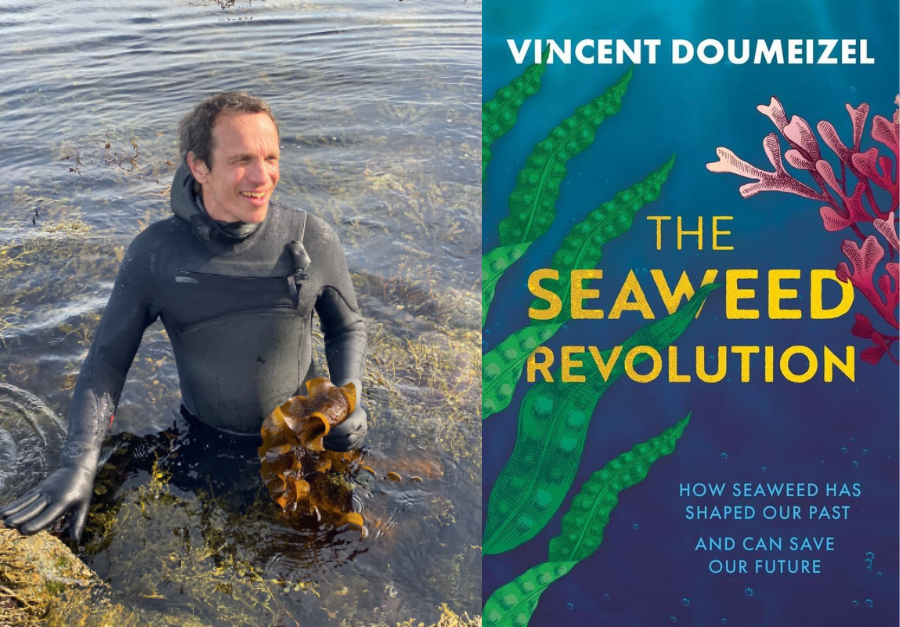Some of our climate solutions are underwater!
My interest in marine ecology arises because many of our ocean habitats are in an even worse state than those on land, but they’re getting little attention. However, it’s an exciting time where funds are flowing into this sector, which is still at an early, formative stage.
Seaweed can offer many benefits to human society, and The Seaweed Revolution is a great introduction. I saw its author, Vincent Doumeizel, speak at this year’s Hay Festival: he is passionate, authoritative and charming. He co-leads the Global Seaweed Coalition, which brings together governments, businesses, producers and others to share information and promote co-ordinated standards.
The book has chapters on the main benefits seaweed can offer. One is in agriculture: seaweed can replace soya as a feed, reduce antibiotic use, and greatly cut methane emissions. More research is needed to confirm these benefits and check for downsides, but the potential looks enormous.

There are also many human health benefits, already evident in societies like Japan where seaweed as a human food is long-established. These include anti-viral properties, obesity reduction, and lowering cancer risk.
Another chapter explores the various ways that seaweed can substitute for plastics, such as biodegradable packaging, already widely used. There are many other industrial uses being explored, for example as sheet mulch in horticulture, and as a textile.
There are also big possibilities in tackling pollution. Many rivers are discharging nitrogen from farms into the sea, and seaweed plantations in estuaries can absorb this and provide a useful crop. There seems also to be great scope for carbon sequestration by seaweed, as it can absorb a lot of carbon, and then retain it on the deep ocean floor.
This book gives a fascinating picture of the seaweed cultivation sector. Currently, almost all of this is in Asia, but there have been promising initiatives in Africa and elsewhere, creating income for impoverished coastal communities. The benefits of more cultivation in Europe, America and elsewhere are huge, and it can be benignly integrated with fish farming: however, there are plenty of hurdles to overcome, including inconsistent and overly restrictive government regulations.
Investment in this sector is growing fast from a low base. This includes governments, and also business investors in ‘algal biotechnology’. As Doumeizel observes, the world’s needs mean that the massive evolution in cultivation on land in the past 150 years needs to happen at sea within the next couple of decades, and without the damaging side-effects. Do read this book, and you’ll understand what’s at stake!
